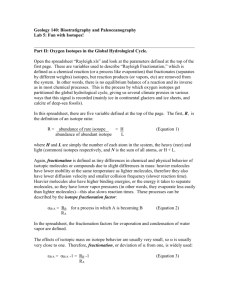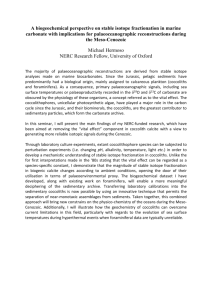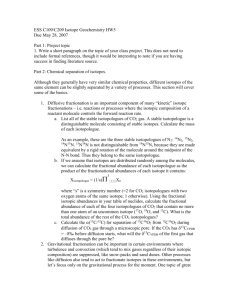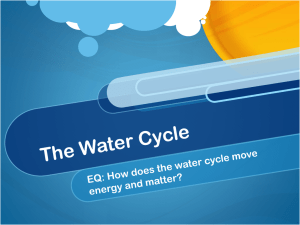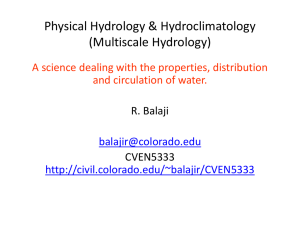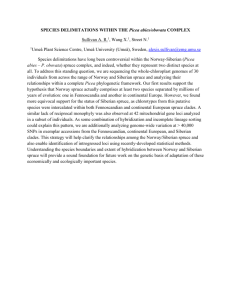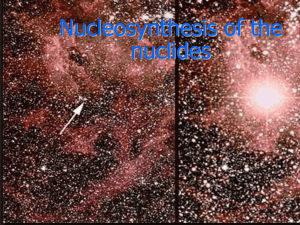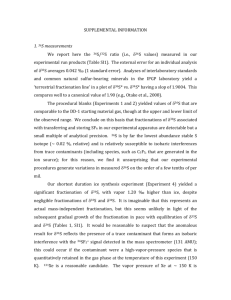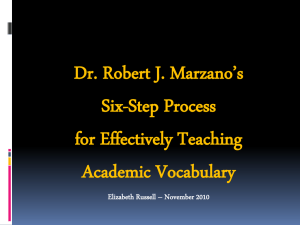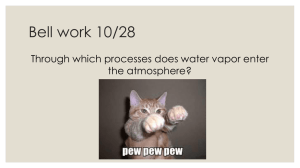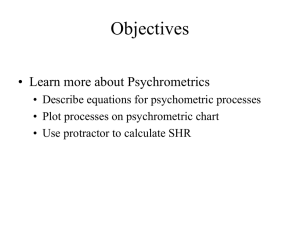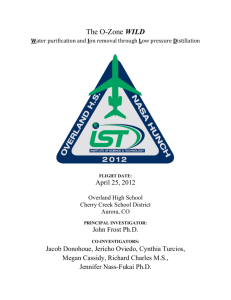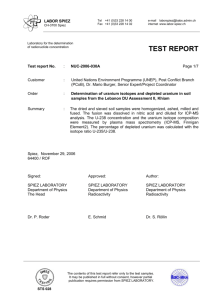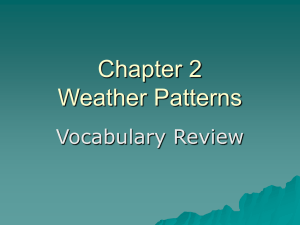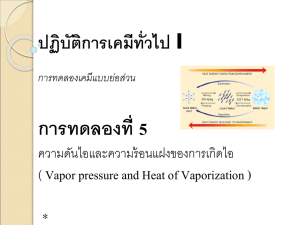SiSPAT-Isotope model
advertisement
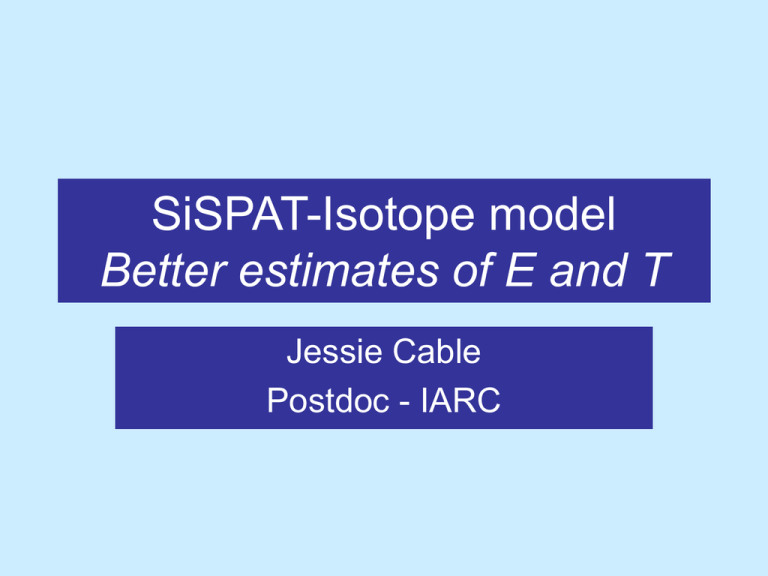
SiSPAT-Isotope model Better estimates of E and T Jessie Cable Postdoc - IARC Very green landscapes that are fluxing water to the atmosphere - Combination of vascular and non-vascular plants - Different water flux dynamics necessitate distinguishing between them (E and T vs. ET) Transpiration Transpiration = Plants control the water vapor flux Evaporation Evaporation = mosses are an evaporating surface (BUT, they are NOT bare ground) http://www.marietta.edu/~biol/biomes/imag es/wetlands/sphagnum_6449a_A80.jpg TRANSPIRATION 5 4 BIRCH-WILLOW SHRUB ECOSYSTEM Dwarf Birch Blueberry Willow Bow Willow Labrador Tea 3 2 6 5 TRANSPIRATION 6 1 Black Spruce Cranberry Labrador Tea Blueberry 2 3 2 5 TRANSPIRATION TRANSPIRATION 3 0 BLACK SPRUCE ECOSYSTEM 4 4 Dwarf Birch Black Spruce Cranberry Labrador Tea Willow Blueberry 1 0 5 BLACK SPRUCE ECOSYSTEM WITHOUT DEGRADING PERMAFROST 4 3 2 1 1 0 0 5/25/09 6/8/09 6/22/09 7/6/09 7/20/09 8/3/09 BLACK SPRUCE ECOSYSTEM WITH DEGRADING PERMAFROST 6/1/09 6/15/09 6/29/09 7/13/09 7/27/09 8/10/09 Need better assessment of E and T Rainfall recycling and watershed/soil water balance Changes in landscape / vegetation distributions impact magnitude and partitioning of ET ET Tape et al. 2006 CREW-NASA Need more accurate representation of E and T in atmosphere, hydrological, or vegetation growth models • Little data exist to validate the partitioning of E and T in SVAT (Soil Vegetation Atmosphere Transfer) models • Concentration measurements of stable isotopes of water in soil, plants, and vapor can aid in partitioning / quantifying E and T – E and T differentially impact concentration of isotopes in soil or vapor • soil stable isotope concentrations useful for – determining plant rooting profiles (for validation of root extraction submodels in SVAT) – better quantification of water transfer within soils (vapor diffusion coefficients and hydraulic properties) H2 O 1H, 2H 16O, 18O SiSPAT-Isotope model Braud et al., Journal of Hydrology 309 (2005) 277-300, 301-320 • Modification of the pre-existing 1D SiSPAT model (Simple Soil Plant Atmosphere Transfer model) to include transport of stable isotope species to better estimate E and T • Coupled heat, water, and isotope transport equations solved for temperature and matric potential and isotope profiles • forced by air temp, humidity, wind speed, incoming solar and long wave radiation, rainfall • bare ground, saturated soils, steady state conditions (equilibrium between vapor and liquid phases for isotopes) • Currently focused on estimating kinetic fractionation coefficient Issues with adding isotope transport 1H, 2H • Correctly accounting for fractionation 16O, associated with molecular diffusion • turbulent vs molecular diffusion affecting resistance to isotope vapor flux • Need a plant component and proper treatment of plant physiology • Kinetic fractionation factor for drying soils and non-saturated conditions 18O Data-model integration issues • The solution of the isotope species transport equation requires high resolution of the vertical profile near the surface (particularly to capture the vapor return) • Problem: require fine time steps that field sampling can not yet provide Species spruce rubus ledum betula post rain pre rain 0-5 5-10 Depth (cm) 10-20 20-30 30-40 40-50 50-60 60-70 post-rain pre-rain 70-80 80-100 -180 -170 -160 -150 -140 D ( /00) 0 -130 -120 -110


